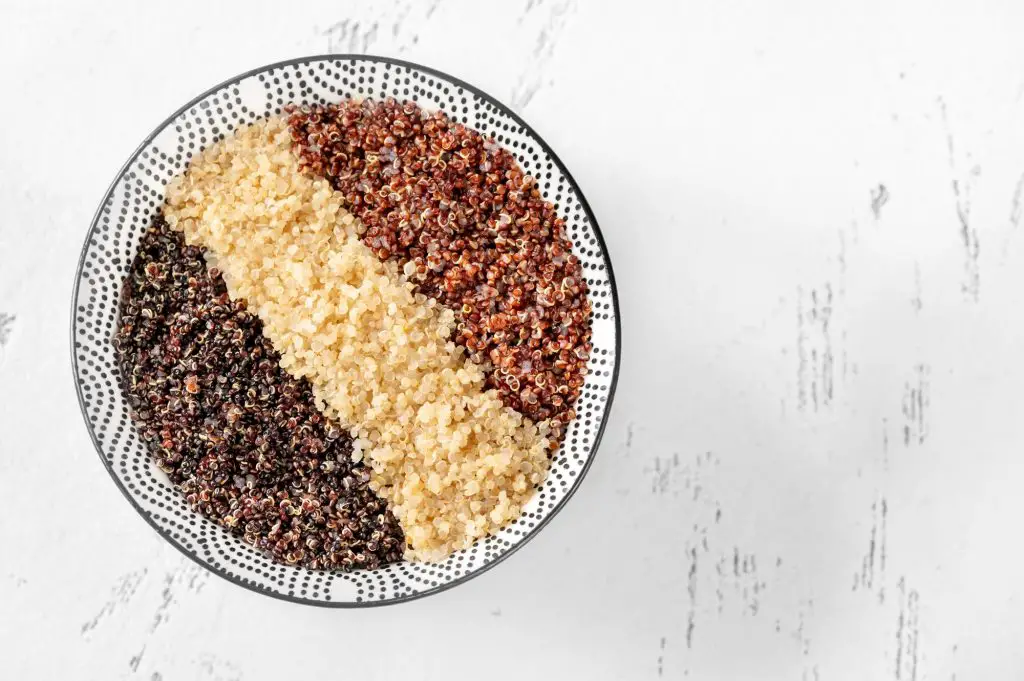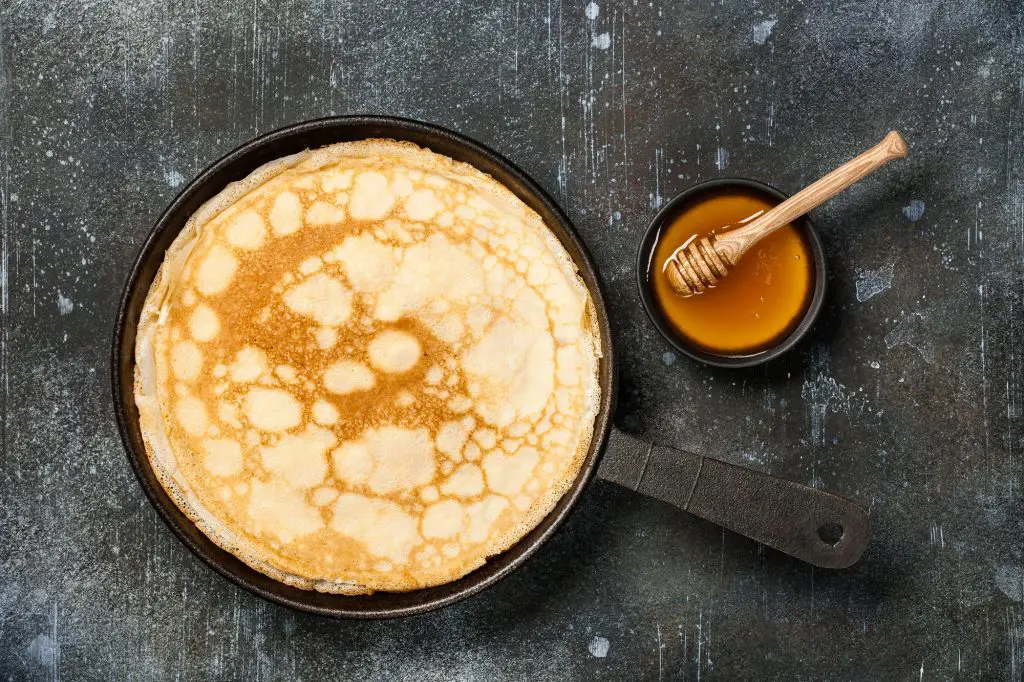The names of these dishes might be new to you and if that is the case, no need to fret. You are in the right place because here, I’m going to tell you all and more about what you need to know about quinoa and couscous, their health benefits, what makes them similar, and their differences.
If you’ve heard about these dishes and have been thinking of trying them out, you might want to pay close attention to the area where their health benefits are listed out so you’ll know what dish would work for you and what dish wouldn’t.
All in all, welcome to learning more about couscous and quinoa, because well, learning something new and knowing more about what you already know has done nobody any harm.
Table of Contents
Quinoa
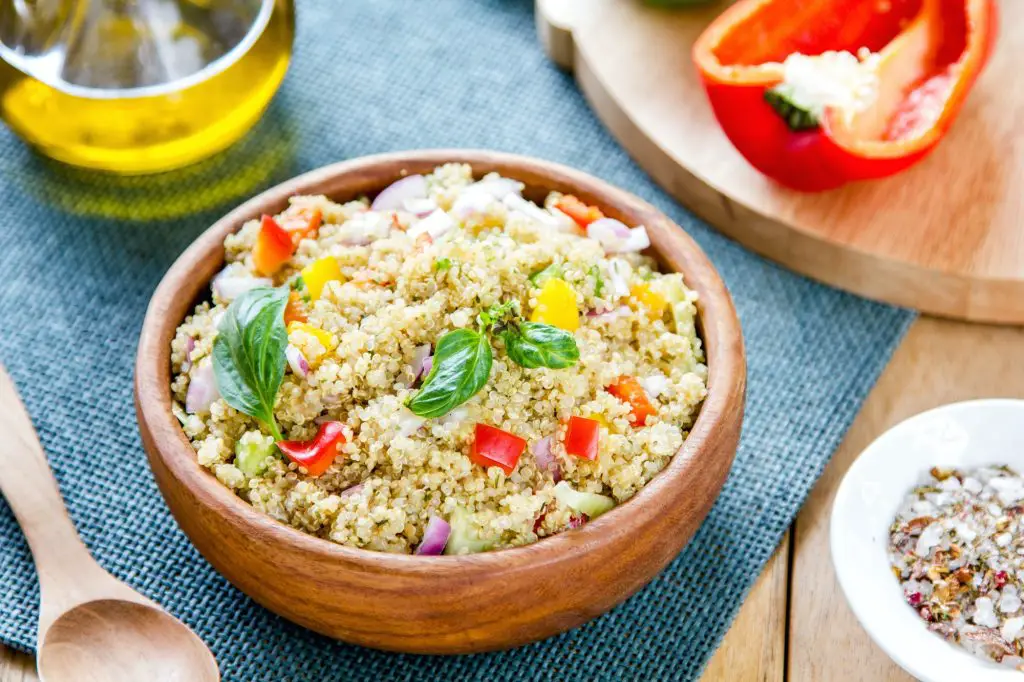
Quinoa is a pseudocereal (almost similar to a cereal). According to Wikipedia, it is a flowering plant in the amaranth family (the amaranth family is a large group of dicotyledonous flowering plants).
Quinoa is a herbaceous annual plant grown as a crop primarily for its edible seeds. The seeds are rich in protein, dietary fiber, B vitamins and dietary minerals in amounts greater than many grains. There are three main types: red, white and black.
In other words, quinoa is basically a seed which is prepared and eaten similarly to a grain (just like how you prepare and eat your rice).
Health Benefits of Eating Quinoa
Quinoa is a very healthy seed, it even has more health benefits than your regular grains. Some of its health benefits are:
1. It is extremely nutritious
Some of the nutrients contained in one cup of cooked quinoa are protein, fiber, magnesium, manganese, folate, phosphorus, copper, vitamin E and zinc, to mention a few.
2. Quinoa has a low glycemic index (GI)
The glycemic index is a number from 0 to 100 assigned to a food, with pure glucose arbitrarily given the value of 100, which represents the relative rise in the blood glucose level. This is just to say that because quinoa has a low glycemic index, it is very good for your blood sugar level.
3. Quinoa is Gluten-free
Quinoa is gluten free and therefore perfect for you if you’re gluten intolerant, or have gluten allergies.
4. It has beneficial effects on metabolic health
Metabolism is the rate at which food and drink is converted to energy and expenses for use by the body. So, quinoa improves your metabolic health and makes the complex process, where calories in food and beverages are combined with oxygen to release the energy your body needs to function, a smoother process.
5. It is high in Fiber
One cup of quinoa contains 5 grams of dietary fiber, which is more than white or brown rice. And fiber in quinoa helps you maintain a healthy weight because it makes you feel full for quite longer than normal so you don’t overeat. Also, fiber helps in controlling your blood sugar level.
Other health benefits of eating Quinoa includes:
- Quinoa may help lower the risk of chronic diseases
- It is a complete protein with all the essential amino acids.
These and some more not mentioned here are health benefits that quinoa would provide you if made a part of the dishes you eat. Now, let’s talk about Couscous, and its health benefits.
Couscous
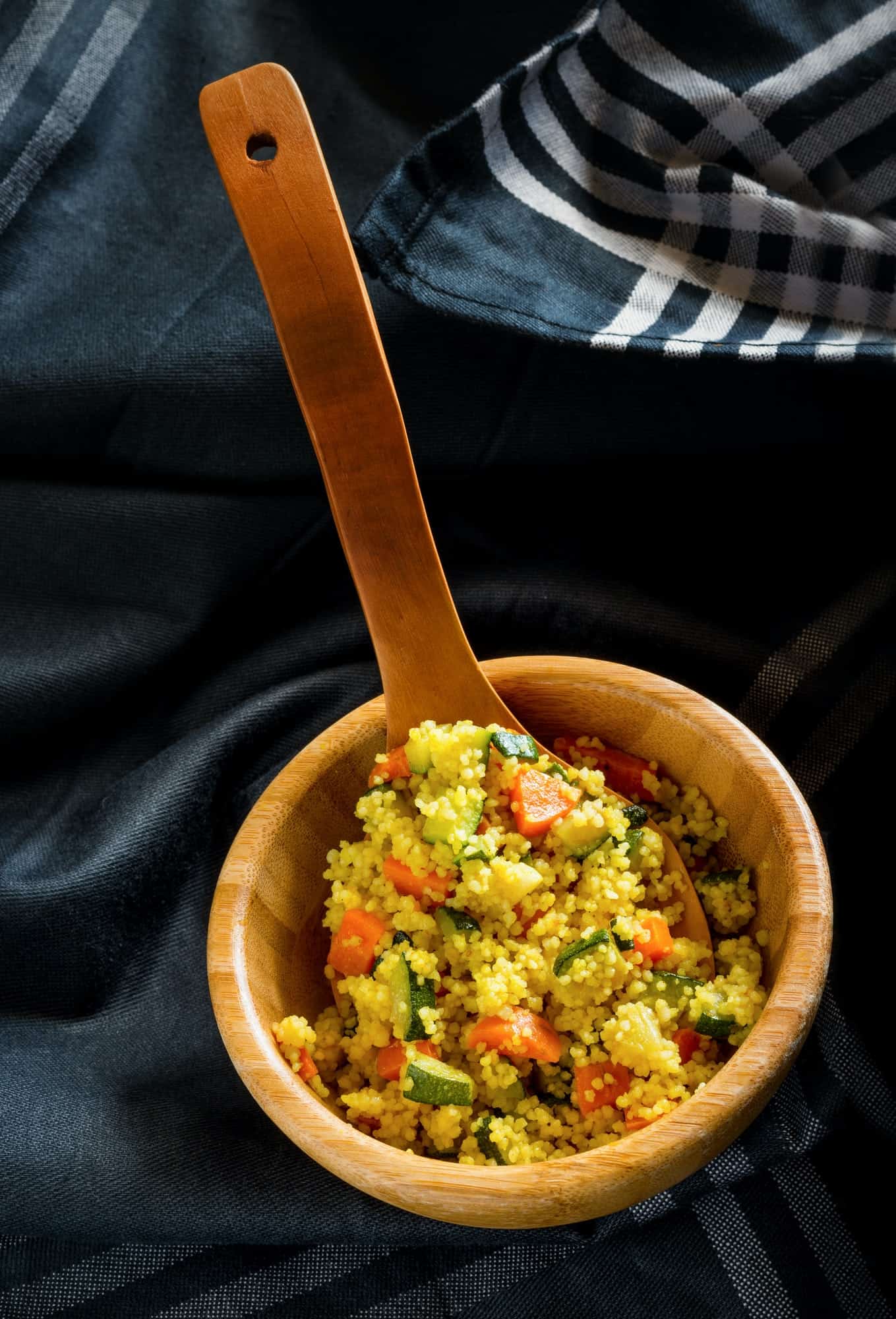
According to Wikipedia, couscous is a North African dish of small steamed balls of crushed durum wheat semolina that is often served with a stew spooked on top.
One main ingredient in couscous is semolina and there are three types which are the Moroccan, which is the tiniest and most readily available, Israeli (pearl) couscous, which is about the size of peppercorns and takes a little bit longer to cook, and the last one which is Lebanese couscous is the biggest of the three and also has the longest cooking time.
So, couscous is simply a tiny pasta made of coarsest ground durum wheat (semolina), or barley.
Health Benefits of Eating Couscous
1. It is low in fat, calories and is a slow release carbohydrate.
This means that couscous takes longer to release energy into the body and this will keep you fuller for longer.
2. Couscous is rich in selenium
Selenium is an essential mineral that supports the immune system, fertility, and cognitive function. It is also said to prevent some forms of cancer and also plays a central role in metabolism and thyroid function.
3. It contains a lot of protein
Couscous is a good source of plant-based protein and it is good to consume protein because it is made of amino acids and amino acids are involved in almost all the metabolic processes in your body.
4. Couscous is very easy to prepare
All you have to do is get the Western version sold in supermarkets that have been pre-steamed and dried, then add water or broth, depending on your preference, boil, and fluff.
However, even though couscous has its health benefits and can help boost your immune system, it is most definitely not the best carb choice for everyone because it could increase blood sugar levels, it is quite low in some essential nutrients like fiber and potassium, and it contains gluten. So, if you’re gluten intolerant, couscous might not be the best dish for you.
Now, here are some similarities and differences between quinoa and couscous.
Quinoa vs Couscous: What Are The Similarities?
- They are both high in protein with all the essential amino acids.
- Both quinoa and couscous are small and grain-like with very mild nutty flavours.
- They both help in metabolism process in the body
- They can both be cooked with water or broth, depending on your preference.
- Even though couscous and quinoa differ in flavour and texture, they both absorb water and do not need draining.
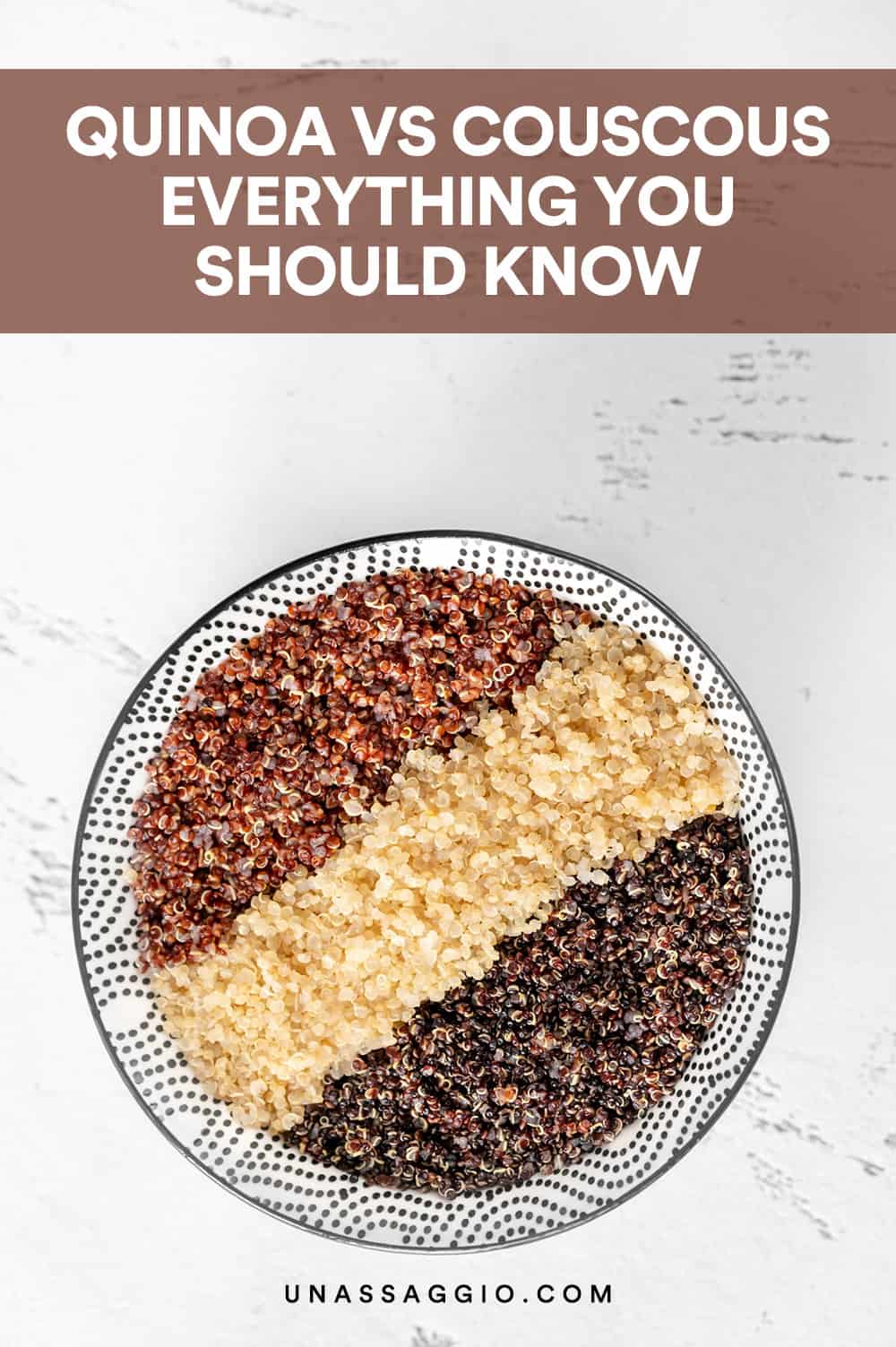
Quinoa vs Couscous: What Are The Differences?
- While quinoa is gluten-free, couscous has gluten in it and therefore not a dish for people with gluten intolerance or allergies.
- Even though both can be used interchangeably in some dishes, couscous has a pasta-like texture and a neutral flavour, while quinoa’s texture is more crunchier and it has a nutty flavour.
- Quinoa is a seed and can be made into flour for use in baked goods while couscous is a grain and cannot be made into flour.
- In terms of health, quinoa wins hands down. It is a much healthier choice because it contains fiber, and so much more of other micronutrients, while couscous is quite low in some essential nutrients like fiber and potassium.
- The two are naturally low in fat, but, quinoa contains 12 times more than the amount of fat in couscous. So, if you’re counting for low in fat and calories, couscous wins.
- Quinoa has a low glycemic index of 53, while couscous has a medium glycemic index of 65. This means that quinoa is less likely to spike your blood sugar levels but will instead produce a steadier and slower blood sugar increase.
In conclusion
You can enjoy both dishes with pleasure, but remember, if you’re looking for a more nutritional and gluten-free dish, quinoa is that dish for you, and, if you’re looking for low in fat and calories, couscous is the dish for you. If you have gluten allergies or are intolerant to gluten, it is best to stay away from couscous.
Nevertheless, both dishes are enjoyable and have their own health benefits and if you decide to try them, you’d be sure to get the satisfaction you desire.

